There is often concern over the ICANN and DNS registries being handed over to the United Nations and other entities. It will often result in people talking about how it gives them the ability to shut down the internet.
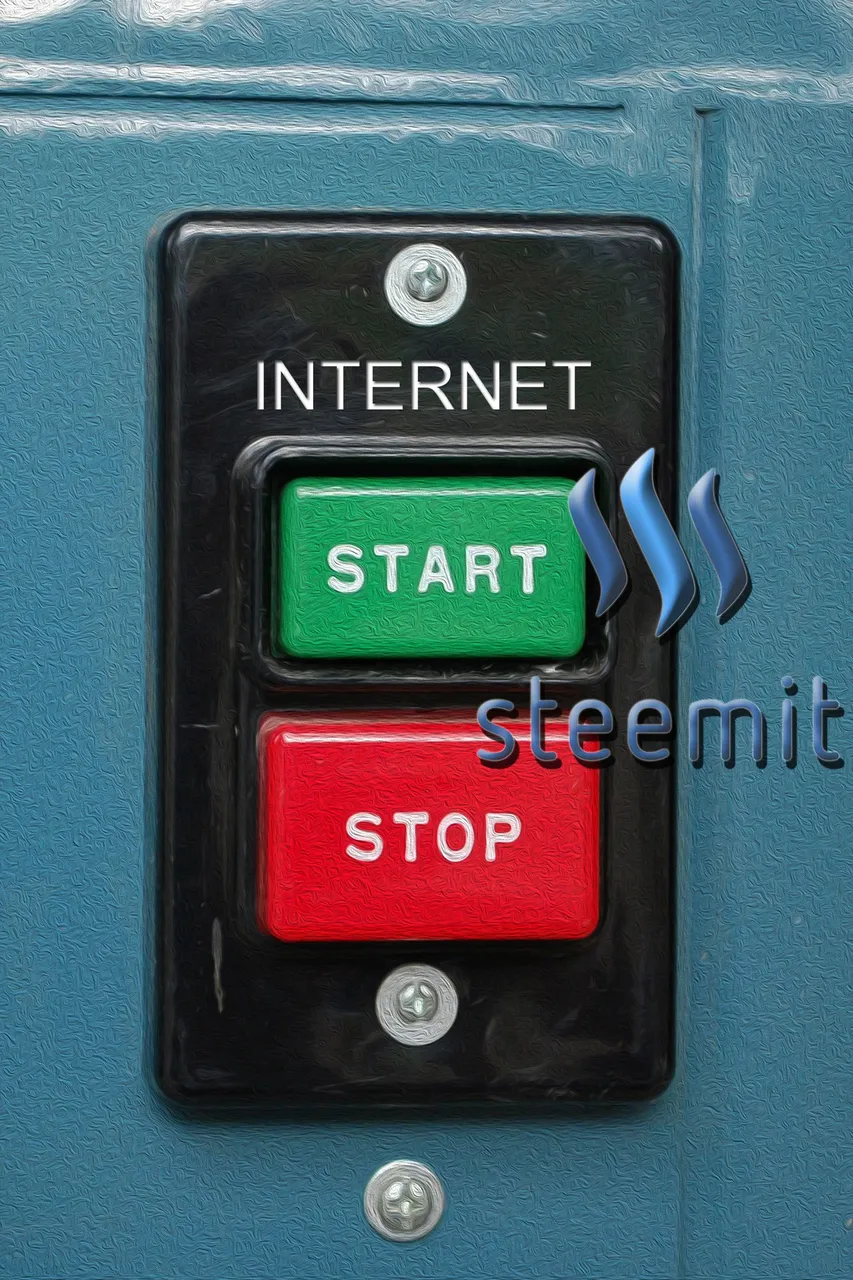
It actually does not.
They can certainly have an impact on the internet, but it is important to understand how the internet operates and some of your fears can be headed off.

Source: wikipedia.org
Some parts of the internet
TCP/IP Protocol is the IP addresses that you will often see, but likely will not use as they are not as easy to remember. What is known as IPv4 or Internet Protocol Version 4 had 4 bytes of addresses that were possible. Some of these were already allocated (set aside) for very specific things. There are some of these set aside to be use by private networks (meaning LAN or local) and they are the most common you will see. They fall within the 10.x.x.x, 192.168.x.x, and 172.16.x.x - 172.32.x.x range. Those will not be used to identify a computer on the INTERNET which we can call WAN (wide area network) in this case. The Internet is built from public IPs that are numbers from 1-255 in the x.x.x.x pattern. That is IPv4. We've been running low on IP addresses for the public space for some time so they have had an IPv6 ready to replace it for some time, but IPv4 is still very much entrenched and seems loathe to release it's existence. As a network engineer for the company I work for I work exclusively with IPv4 addresses on my network. We have not yet switched to IPv6 and neither have most of the agencies and clients we work with.
So computers and devices on a network are given an IP address. If it is a LAN IP address then to reach the internet (WAN) they must go through a router. Your modem if you have one from an ISP is also a router. This router is what is known a gateway for your LAN. The router will have an IP address itself from the internet provider and it will know an IP address for a gateway on your ISPs network that it must talk to in order to reach out.
This communication on the IP address level which is what people are concerned about when it comes to ICANN is how the internet works. IP addresses are known as Layer 3 in the world of networking. That is a network layer. They run on top of Layer 2 which is the data link layer. Some other things do happen at the data link layer. I am not going to delve too deeply into them as that is not necessary for explaining why I am not terribly concerned about the ICANN being in UN or other hands.
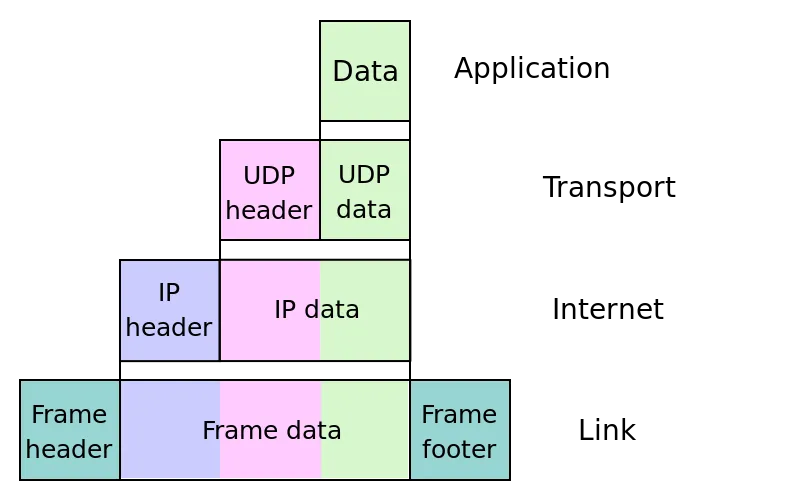
Source: wikipedia.org
BGP or Border Gateway Protocol actually tells the routers around the internet how to find public IP addresses. If you purchase a block of 255 addresses (smallest that can be routed via BGP also known as a /24) your ISP will setup their BGP tables such that the internet becomes aware that all traffic for those 255 addresses should pass through them. This is also where routing comes in. BGP also facilitates support for alternate routes when they cannot reach a set of IP addresses by another way.

Source: wikipedia.org
DNS or Domain Name System has one major job. It's job is to make the internet easier for humans to interact with. It is much easier to type www.google.com than it is to type 216.58.217.4. So a DNS servers job is to translate words into numbers. It does have more abilities and purposes beyond that, but that is it at the basic level. We also like to use domain names rather than IPs in a lot of development, because you can move to another location with a different IP address and simply repoint your DNS name you own to the new IP address and your program works without you having to change anything. If you used IP addresses all over in the program you would have to manually go through and change all of those addresses to the new address.
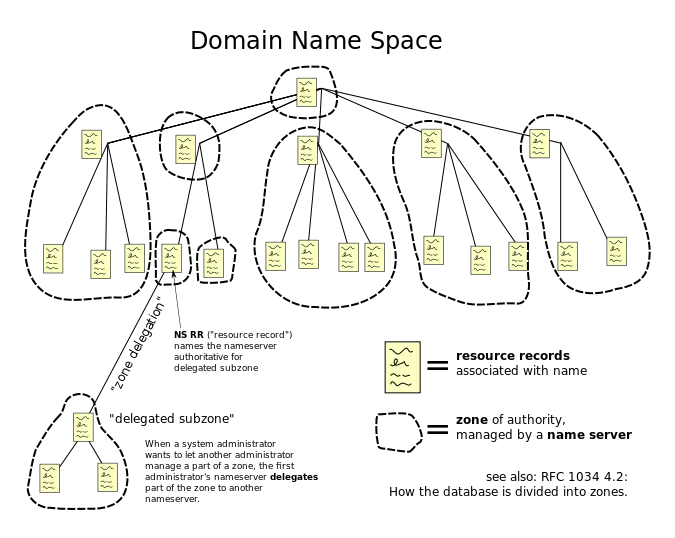
Source: wikipedia.org
So what happens when they kill the internet?
There is always fear of them killing the internet. They certainly can do certain things and they could disrupt it all for a short period of time. For more long term effect they work with the LECs (local exchange carriers) and if the LECs cooperate they could be fairly long term effective in their region. Yet this would not be done via DNS or ICANN registries.
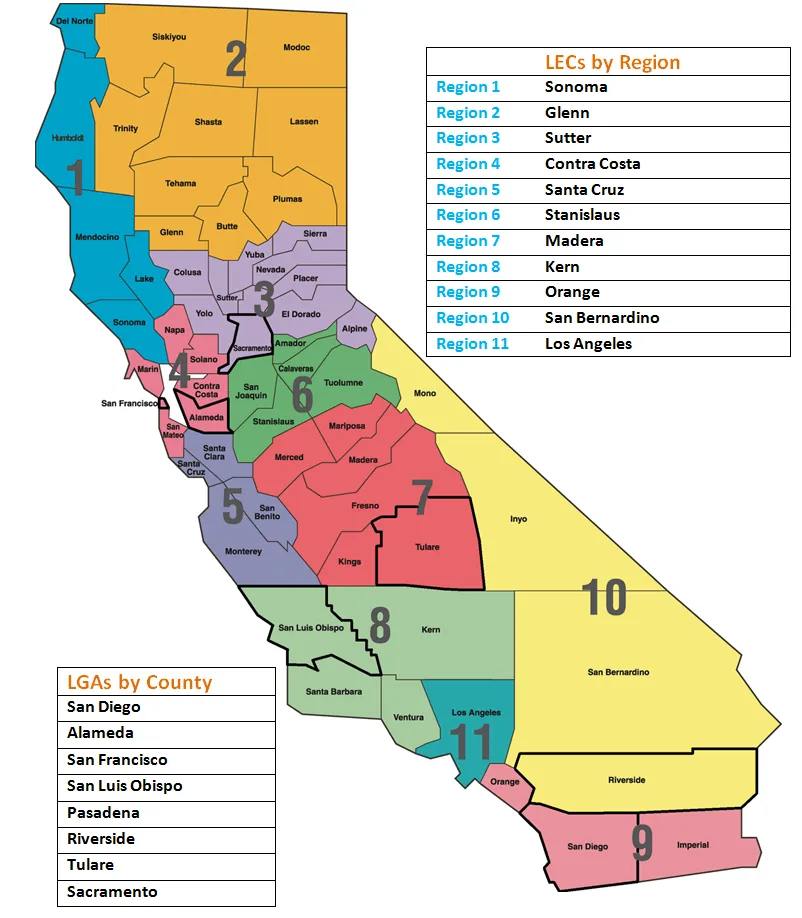
Source: www.dhcs.ca.gov - this is an example of LEC regions just in California.
To kill the internet you need to block traffic at junctions, and/or reroute BGP and DNS.
The thing about BGP and DNS is that network engineers can reprogram those things on their own equipment so if a large local DNS or BGP began causing problems I could route around it and slowly build my own. So if the internet were knocked down at a DNS or BGP level it would begin to spring back up as people routed around it and took over some of the duties they were delegating elsewhere.
It is the human element such as people rioting that would be a bigger issue.
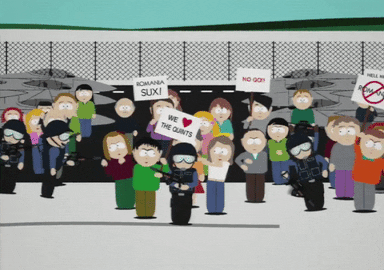
Source: giphy.com
As to shutting it down at the junctions the people that would likely shut it down also tend to use the internet so it likely would not be completely shut down.
In addition, more and more phone systems are going off of regular analog copper wire land line based systems and switching to VoIP (Voice over IP). This is happening on a very large scale even with the large carriers. I am aware as this is the business I am in. In these cases without the internet the phone communications would also be down.
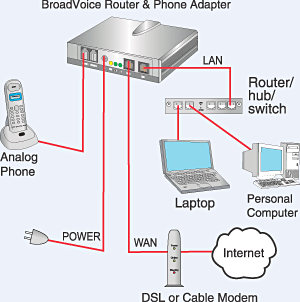
Source: wikipedia.org
How could it be shut down?
The term LEC or local carrier most often refers to some entity that has a government mandated monopoly in a region. You can tell who they are when you try to purchase an internet circuit and you realize that the local cable company that is dominant has their own network, and other than that no matter who you purchase from they tend to go through one local carrier. In my area it is CenturyLink. In other parts of the country it is Verizon, or Light Tower, or AT&T, etc. If I buy a DS3 circuit from the carrier XO in my area they will say SURE. The last mile though and where it actually connects at my location will be CenturyLink. I basically have two choices in my area. A circuit running over Comcast, or a circuit running over CenturyLink's last mile. This is a common pattern all over the United States. I do not know if it is the same in other countries but it would not surprise me if this is the case there as well.
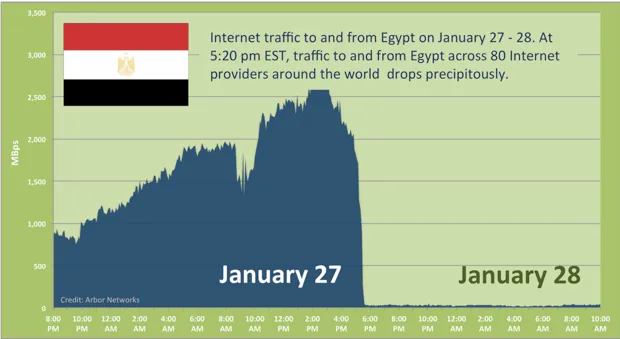
Source: www.fastcompany.com
So if they got cooperation from all of these major carriers in every region, the carriers could shut down the internet by effectively shutting off everyone's circuits. As you can imagine this would be large scale and require a lot of coordination. It would not be doable from ICANN or DNS Registry. Other than for a short term until people changed their BGP and DNS not to accept propagation from them. So it could happen, but it could also be fixed with some time. If people don't panic and riot and give people a chance to fix it. That is a BIG if.
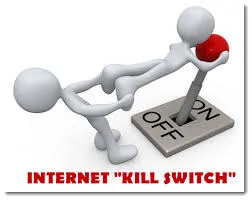
Source: newsletter.followersofyah.com
A note about DNS. Popular public DNS servers people like to use are 8.8.8.8, 8.8.4.4 which are owned by Google. If google decides to block certain sites or reroute them to a different IP address they can do this on those DNS servers and anyone who uses them would be impacted by those routes. In addition, DNS works by propagation. DNS servers talk to each other. "Hey I have a new address change", "Thanks I will update my tables and spread the word." so the changes made WILL impact many DNS servers. However, DNS servers override any information with anything explicitly set up. I can literally map an address name (domain name) on my PC to a specific IP address and it will use what I tell it, rather than what the DNS server says. This can be done at a DNS level as well. So if the DNSes were taken down, they could be replaced, it'd simply be slow.
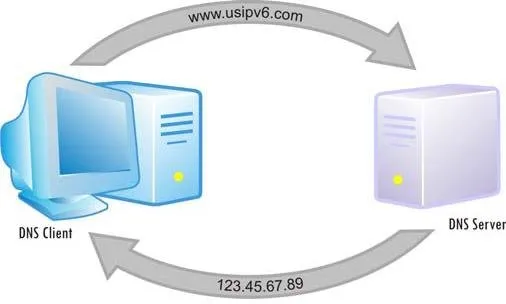
Source: www.routercheck.com
Closing
There are a lot of other factors that come into play and the possibility of an internet kill switch being in existence could be real to some degree. I personally am more concerned about the power grid, and the potential human problems from riots and such.
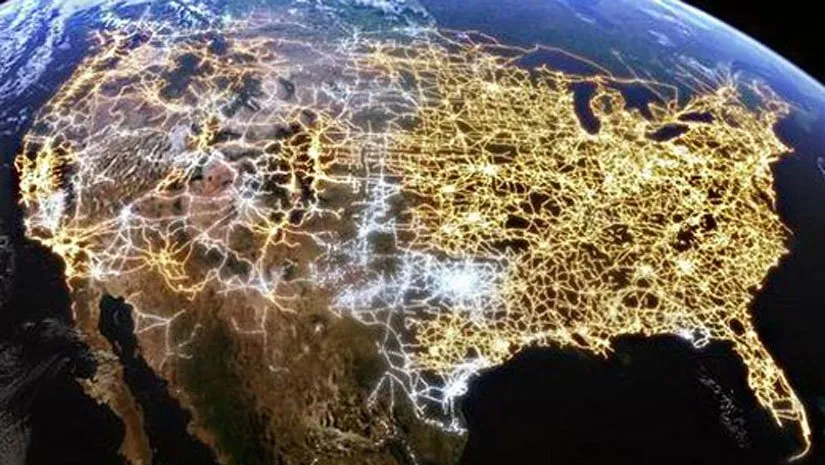
Source: beprepared.com
This is also a deep subject and if I got any of the technical aspects wrong in my rush to ease concerns feel free to comment and offer corrections.
Resources for further research:
Wikipedia:
- Private Network - aka LAN
- IPv4
- IPv6
- Regional Internet Registry
- Border Gateway Protocol - aka BGP
- Domain Name System - aka DNS
- Local Exchange Carrier - aka LEC
- Data Link Layer - aka Layer 2
- Network Layer - aka Layer 3
- Internet Corporation for Assigned Names and Numbers - aka ICANN
- Internet Kill Switch
- Internet Protocol Suite
- Address Resolution Protocol - aka ARP
- Internet
- Voice over IP - aka VoIP
